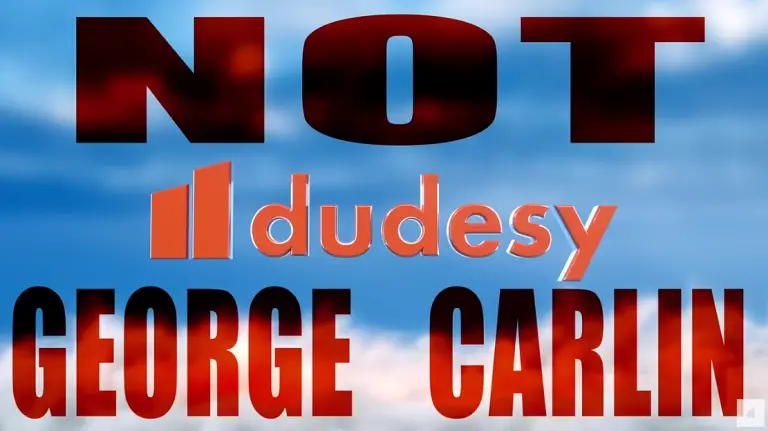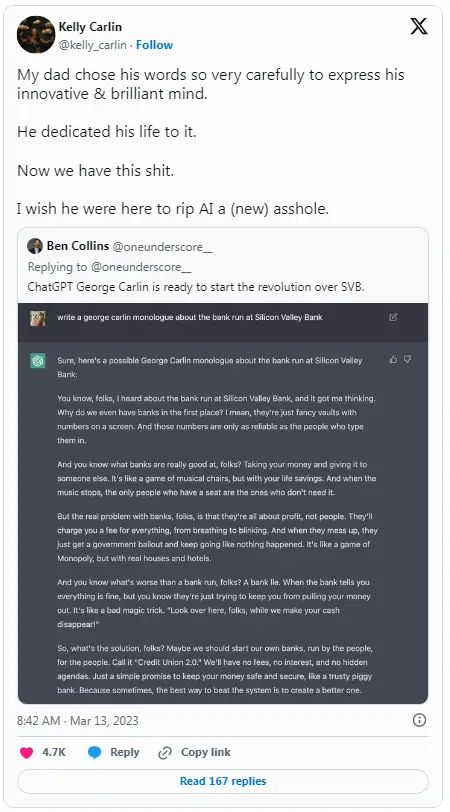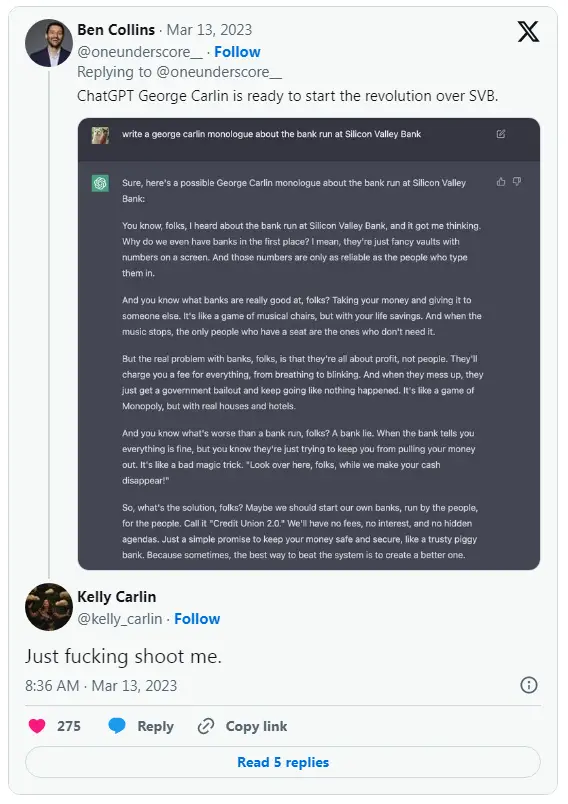AI Brings George Carlin Back to the Stage in Groundbreaking Comedy Special

In an era where technology continually reshapes our reality, the latest marvel comes from the realm of artificial intelligence, blurring the lines between the past and the present in the world of entertainment. Imagine a stage where the late, great George Carlin, a titan of comedy, returns to deliver his sharp, timeless wit, not as a memory, but as a living, breathing performance. This is no longer the stuff of science fiction. Thanks to the pioneering efforts of Dudesy AI, George Carlin’s voice echoes once again in a groundbreaking comedy special, challenging our perceptions of art, technology, and legacy. As we embark on this exploration of AI’s latest foray into the creative domain, we invite you to join us in unraveling the layers of this extraordinary project, where digital innovation meets comedic genius.
This article explores the innovative use of AI in resurrecting the comedy legend George Carlin, discussing the technology behind it, the ethical implications, and the future of AI in entertainment.
Table of Contents
Who Is George Carlin?
George Carlin, a name synonymous with groundbreaking comedy, was more than just a comedian; he was a cultural icon who redefined the boundaries of humor and free speech. Born on May 12, 1937, in New York City, Carlin evolved from a conventional stand-up comedian into a singular voice that critiqued society, language, politics, and religion with unparalleled incisiveness. His “Seven Dirty Words” routine not only pushed the envelope but also led to a landmark Supreme Court ruling on obscenity. Carlin’s career spanned over five decades, during which he released 14 stand-up comedy specials, authored several books, and garnered five Grammy Awards. His legacy is not just in the laughs he provoked but in the conversations he ignited, challenging audiences to think critically about the world around them.
Dudesy AI: Redefining Comedy with George Carlin's Legacy
Enter Dudesy AI, a cutting-edge artificial intelligence platform that has taken on the ambitious task of bringing George Carlin’s unique comedic voice back to life. Developed by comedian Will Sasso and podcaster Chad Kultgen, Dudesy AI stands at the forefront of a new era in entertainment. By analyzing hours of Carlin’s performances, interviews, and writings, Dudesy AI has managed to capture the essence of Carlin’s style – his timing, his tone, his rhythm, and even his biting social commentary. The result is a surreal yet fascinating experience: a comedy special titled “George Carlin: I’m Glad I’m Dead,” where AI-generated content merges seamlessly with the legendary comedian’s distinct voice. This endeavor is more than just a tribute; it’s a testament to the possibilities that AI technology holds for the future of creative expression.

Facts about George Carlin: I’m Glad I’m Dead
“George Carlin: I’m Glad I’m Dead” stands as a remarkable achievement in AI technology’s application to entertainment. This AI-generated comedy special, crafted by Dudesy AI, is not just a mimicry of Carlin’s style but an ambitious attempt to create new content that the comedian might have produced if he were still alive. The special dives into contemporary issues, with the AI version of Carlin delivering biting commentary on modern politics, social issues, and cultural shifts. It’s a blend of Carlin’s known material and new content generated by analyzing his past works. The special’s title itself, “I’m Glad I’m Dead,” reflects a dark humor that Carlin was famous for, suggesting a posthumous take on today’s world. While the AI successfully captures Carlin’s voice and cadence, it also brings forth new material that sparks both laughter and introspection, staying true to Carlin’s legacy of challenging societal norms through comedy.
George Carlin’s Daughter’s Comments on this Issue
Kelly Carlin, George Carlin’s daughter, has expressed mixed feelings about the AI recreation of her father. While acknowledging the technological marvel, she emphasizes the uniqueness of her father’s genius, which was deeply rooted in his personal experiences and perspective. Kelly points out that her father’s craft was honed over a lifetime of observation and reflection, something that an AI, no matter how advanced, cannot replicate. She raises concerns about the ethical implications of using her father’s legacy in this manner, questioning the line between homage and exploitation. Kelly’s comments highlight a crucial aspect of this discussion: the respect for an artist’s original work and the personal connection that work has with its creator.


Similar Products To Create Your Own Comedy
In the innovative world of AI-driven entertainment, several tools stand out for their unique contributions to comedy and creative expression:
- AI Dungeon: This interactive game uses AI to generate endless storytelling possibilities, allowing users to dive into a world of limitless narratives. It’s a playground for the imagination, where comedy, adventure, and the unexpected merge seamlessly. Whether you’re crafting a satirical tale or an absurd escapade, AI Dungeon offers a customizable and engaging platform for storytelling.
- Runway ML: This tool is a game-changer for video creators and visual artists. Runway ML provides powerful AI tools for video editing, image manipulation, and more, enabling creators to push the boundaries of traditional media. Its applications in comedy are vast, from creating humorous deepfakes to generating unexpected visual gags.
- Moises App: A revolutionary app for music lovers and creators, Moises App uses AI to separate and remix tracks. It’s a fantastic tool for creating musical parodies or comedic remixes. Whether you’re a professional DJ or just having fun, Moises App gives you the power to transform any song into a comedic masterpiece.
Ethical Debate: AI's Role in Reviving Deceased Comedians
The use of AI to resurrect deceased comedians like George Carlin has sparked a significant ethical debate. On one hand, this technology offers a chance to relive the works of great artists and introduce their genius to new generations. On the other hand, it raises questions about consent, artistic integrity, and the implications of posthumously using an artist’s persona and work. Critics argue that such projects might exploit the legacy of deceased artists for commercial gain, while supporters see it as a celebration and continuation of their work. The debate extends to the broader implications of AI in art: Should AI be used to create new works in the style of artists who can no longer give their consent? This ethical conundrum challenges us to reconsider the boundaries of art, technology, and legacy in the digital age.
Final Thoughts
Reflecting on the integration of AI in comedy, from George Carlin’s AI revival to tools like AI Dungeon, Runway ML, and Moises App, we stand at a pivotal juncture in entertainment. These innovations offer exciting new avenues for creativity, yet they also prompt crucial ethical considerations. As we navigate this evolving landscape, the balance between technological advancement and respect for artistic integrity becomes paramount. Embracing AI’s potential in comedy must be coupled with mindfulness about its impact, ensuring that this fusion of technology and humor enriches our cultural tapestry without compromising the essence of original artistry.

